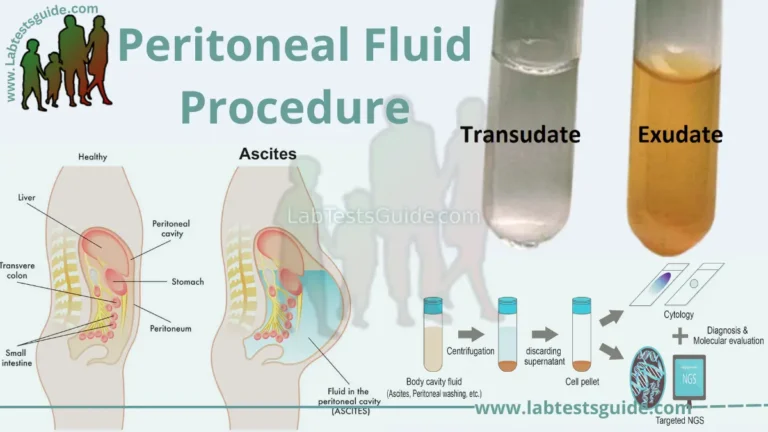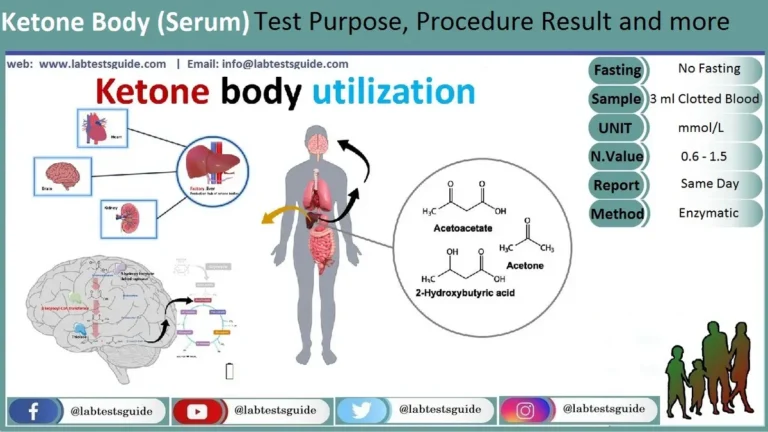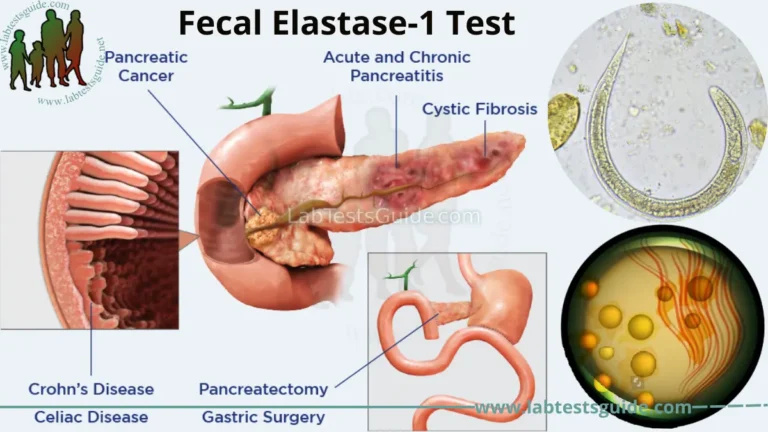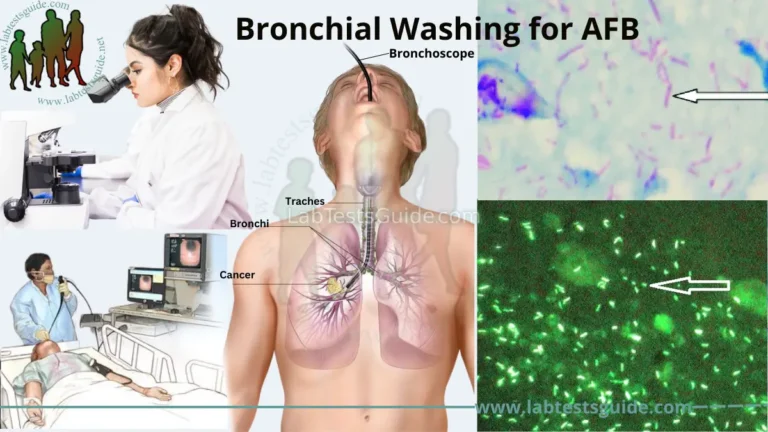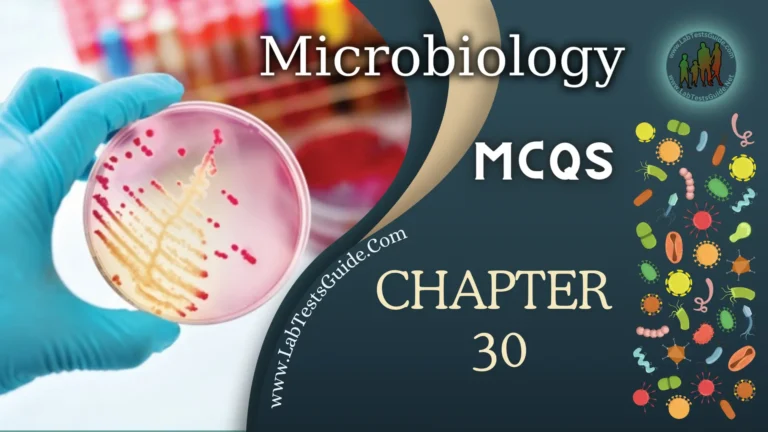Alkaline Peptone Water (APW) is a growth medium used in microbiology for the cultivation of various microorganisms. It is made by adding peptone, a hydrolyzed protein, to water and adjusting the pH to 7.2-7.4 with a strong alkali such as sodium hydroxide. The alkaline pH is useful for the growth of some types of bacteria, such as certain strains of E. coli. APW can be used as a general-purpose medium or as a enrichment medium to selectively isolate certain organisms.

Composition of Alkaline Peptone Water :
| Ingredients | Gms/liter |
|---|---|
| Peptone | 10.0 |
| Sodium Chloride | 20.0 |
| Distilled water | 1000 ml / 1Liter |
| Final pH (at 25°C) | 8.6 ± 0.2 |
The composition of Alkaline Peptone Water (APW) typically includes:
- Peptone: A hydrolyzed protein that serves as a source of nitrogen, amino acids, and other essential nutrients for the growth of microorganisms.
- Water: The solvent that dissolves the other ingredients and provides a suitable environment for the growth of microorganisms.
- Alkali: A strong alkali such as sodium hydroxide or potassium hydroxide is used to adjust the pH of the medium to 7.2-7.4.
- Sodium chloride may be added to the medium to provide an additional source of ions and to increase the osmotic pressure of the medium.
- APW is generally considered as simple and defined medium, some manufacturers may add other ingredients like Magnesium, Calcium and Phosphates.
It’s important to note that the exact composition of APW may vary depending on the manufacturer and the intended use of the medium.
Principle of Alkaline Peptone Water
Here are some of the main principles of Alkaline Peptone Water (APW) as a growth medium:
- Providing essential nutrients: APW contains peptone, a hydrolyzed protein, which serves as a rich source of nitrogen, amino acids, and other essential nutrients for the growth of microorganisms.
- Maintaining appropriate pH: The pH of APW is adjusted to 7.2-7.4 with a strong alkali such as sodium hydroxide, this alkaline environment is suitable for certain types of bacteria such as certain strains of E.coli to grow.
- Enrichment medium: APW can be used as a enrichment medium to selectively isolate certain organisms.
- General-purpose medium: APW can be used as a general-purpose medium for the cultivation of various microorganisms.
- Sterilization: APW is usually sterilized by autoclaving, which is a method that uses high pressure and temperature to kill any microorganisms present in the medium.
- Culture Conditions: APW is usually incubated at 37°C in an aerobic environment.
It’s important to note that these are general principles and the exact composition of APW and the conditions for cultivation may vary depending on the manufacturer and the intended use of the medium.
Preparation of Alkaline Peptone Water
- Add 20g to 1 litre of distilled water.
- Mix well, distribute into final containers and sterilize by autoclaving at 121°C for 15 minutes.
- Inoculate swab specimens directly into Alkaline Peptone Water.
- Material not being cultured directly from a swab may be transferred into the medium using a sterile microbiological loop.
- For faecal specimens, aseptically transfer approximately 1g of the sample to the medium and mix well.
- The inoculated broths are generally incubated at 35-37°C for 5-6 hours or 18-20 hours at 18-20°C.
- Allow the medium to cool: After autoclaving, allow the medium to cool to room temperature. Once cooled, it can be stored at 2-8°C for up to a month.
Result Interpretation on Alkaline Peptone Water
The interpretation of results from Alkaline Peptone Water (APW) depends on the specific microorganism and the purpose of the culture. In general, the presence of growth on the medium is an indication of the presence of the microorganism in the sample being tested.
- Positive results: If growth is observed on the APW plate, it is considered a positive result and indicates the presence of the microorganism. The growth can be observed as a change in color, turbidity, or the formation of colonies.
- Negative results: If no growth is observed on the APW plate, it is considered a negative result and indicates that the microorganism is not present in the sample being tested or it can’t grow in the APW.
- Enrichment culture: When used as an enrichment medium, positive results from APW indicate that the microorganism is present in the original sample, but may be present in low numbers. Additional steps, such as subculture or isolation, may be needed to confirm the presence of the microorganism and to obtain pure cultures.
It’s important to note that the interpretation of results can vary depending on the specific microorganism and the purpose of the culture. It’s also important to consider any potential sources of contamination and to follow proper laboratory techniques when interpreting results.
| Organisms | Growth |
| Vibrio parahaemolyticus | Turbid growth |
| Vibrio vulnificus | Turbid growth |
| Vibrio furnissii | Turbid growth |
| Vibrio cholerae serotype Inaba | Turbid growth |
| Vibrio cholerae serotype Ogawa | Turbid growth |
Shelf-life: Up to 2 years providing there is no change in the volume or appearance of the medium suggesting contamination.
Uses of Alkaline Peptone Water
In Microbiology
- It is commonly used for the enrichment of Vibrio cholerae and Vibrio species from food, water, and clinical samples.
- The broth can also be used for direct microscopic examination of specimens using the hanging drop method.
- It is used as a means of enrichment and transportation.
- Initially it was used as a non-selective enrichment broth for the cultivation of Aeromonas
Main Purpose :
- Microbial culture media: Alkaline peptone water is often used as a growth medium for a variety of microorganisms, including bacteria and fungi.
- Sterility testing: It is used to test the sterility of certain products and equipment in a laboratory setting.
- Isolation of bacteria: Alkaline peptone water can be used to isolate and identify different types of bacteria from a mixed sample.
- Enzymatic digestion: Alkaline peptone water is used in a process called enzymatic digestion, which breaks down proteins and other macromolecules in order to extract microbial cells.
- Toxicity testing: Alkaline peptone water is used in toxicity testing to assess the potential harmful effects of chemicals on living microorganisms.
- Antibiotic Production: Alkaline peptone water is used in the fermentation process for producing antibiotics like Penicillin, Streptomycin.
- Other research purposes like studying the growth and metabolism of microorganisms, and in the identification of microorganisms.
Limitations :
- Prolonged incubation will result in the growth of the suppressed contaminating organisms.
- Growth from the enrichment broth is used for plating on selective media. For biochemical identification, a pure culture is recommended.
- Certain strains of Vibrio species that require a higher concentration of sodium chloride may show poor growth.
- Further recovery of this enriched broth on selective media is required.
- Biochemical characterization is carried out from pure isolates for complete identification.
- Not all microorganisms can grow in alkaline peptone water, certain bacteria or fungi may not be able to survive or grow well in this type of medium.
- Alkaline peptone water may not be suitable for certain types of tests or experiments, and other types of culture media may need to be used instead.
- The pH and nutrient levels in alkaline peptone water may not be appropriate for all types of microorganisms.
- The composition of the medium may affect the accuracy of the results obtained in the microorganism’s growth and metabolism
- Alkaline peptone water may not be able to support the growth of certain types of microorganisms, such as acid-fast bacilli, which require specific culture media.
- In some cases, the use of antibiotics can inhibit the growth of microorganisms, and therefore, alternative methods for preventing contamination should be used.
FAQs
What is the composition of alkaline Peptone Water?
| Composition alkaline peptone water | |
|---|---|
| Ingredients | Gram/ liter |
| Peptone | 20g |
| Sodium Chloride | 20g |
| Distelled Water | 1000ml |
| Final pH (at 25°C) | 8.4±0.2 |
What type of media alkaline Peptone Water is?
Alkaline peptone water is an enrichment medium used for Vibrio cholerae and other Vibrio The pH of the medium ranges from 8.6-9.0. The alkalinity of the medium favors the growth and multiplication of Vibrio species while inhibiting the growth of faecal coliforms and other commensals
Is alkaline Peptone Water selective?
Alkaline Peptone Water was first formulated by Shread, Donovan and Lee1 to be used as a non-selective enrichment broth for the cultivation of Aeromonas spp. Cruickshank reported that when the pH is raised, the medium can be used to effectively cultivate Vibrio species.
What is the purpose of using alkaline Peptone Water broth in stool culture?
The Alkaline Peptone Water medium can be used to effectively cultivate Vibrio species. It is a suitable enrichment broth for this purpose. The 2% (w/v) sodium chloride incorporated in this medium promotes the growth of Vibrio cholerae, while the alkalinity of this medium inhibits most of the unwanted background flora
What is the purpose of Peptone Water?
Peptone Water is used as a growth medium and as the basis of carbohydrate fermentation media. Peptone Water is recommended for studying the ability of an organism to ferment a specific carbohydrate, which aids in the differentiation of genera and species.
Why do you use alkaline Peptone Water?
Alkaline Peptone Water is recommended for the enrichment and isolation of Vibrio cholerae and Vibrio species. The growth of a broad spectrum of Vibrio sp. is promoted by peptones, a sodium chloride concentration of 10 g/liter, and a high pH of 8.5.
What bacteria grows in Peptone Water?
Peptone water is used as a diluent and nutrient enrichment broth for the resuscitation and growth of a wide variety of microorganisms, including Cronobacter, Enterobacteriaceae, Escherichia coli and Salmonella, in all food and feed products and water samples.
Can bacteria grow in peptone?
Peptone water is a microbial growth medium composed of peptic digest of animal tissue and sodium chloride. The pH of the medium is 7.2±0.2 at 25 °C and is rich in tryptophan. Peptone water is also a non-selective broth medium which can be used as a primary enrichment medium for the growth of bacteria.
References:
- Alkaline Peptone Water, Thermo Fisher Scientific: https://www.thermofisher.com/order/catalog/product/CM0509G
- Alkaline Peptone Water, HiMedia Laboratories: https://www.himedialabs.com/TD/M1844.pdf
- Alkaline Peptone Water, Merck Millipore: https://www.sigmaaldrich.com/technical-documents/protocols/biology/alkaline-peptone-water.html
- Alkaline Peptone Water, Oxoid Limited: https://www.thermofisher.com/order/catalog/product/CM0509B
- Alkaline Peptone Water, Hardy Diagnostics: https://hardydiagnostics.com/alkaline-peptone-water/
Possible References Used


